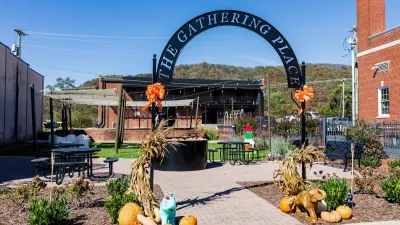The rise in virtual connections and Internet-based communities had many worried that traditional community interaction was dying out. Governing's Alan Ehrenhalt argues it hasn't yet, and probably won't.
"A decade or so ago, having just written a book about the decline of community in America, I found myself giving speeches on the subject to audiences in different parts of the country. The reactions varied, but there was one thing I could always count on: Someone would rise during the question period and ask me about Internet communities. Aren't they the modern replacement for old-fashioned geographical community? Who needs street life when you can be in instant communication with a like-minded beekeeper or Bordeaux drinker anywhere in the world?"
"My answer was always simple and unyielding. Internet communities are a sham. They lack the permanence, commitment and even the reliability of face-to-face social interaction. Much of the time, you don't even know who the person on the other end is. The only genuine community, I kept repeating, was the kind where you can count on seeing your friends in person, week after week, year after year. Some audiences bought this; others didn't."
"In the ensuing few years, my rigid view took something of a beating. Internet relationships, if not full-fledged communities, began to take on a more stable quality."
"In view of all this, I feel the need to be a little cautious in suggesting that as we approach the end of another decade, the pendulum may be starting to swing again. Distance didn't die. Place didn't die. In fact, in much of what you see and read these days, you begin to get the feeling that place - the soil of old-fashioned geographical community - is making a comeback."
FULL STORY: The Rediscovery of Place

Americans May Be Stuck — But Why?
Americans are moving a lot less than they once did, and that is a problem. While Yoni Applebaum, in his highly-publicized article Stuck, gets the reasons badly wrong, it's still important to ask: why are we moving so much less than before?

Using Old Oil and Gas Wells for Green Energy Storage
Penn State researchers have found that repurposing abandoned oil and gas wells for geothermal-assisted compressed-air energy storage can boost efficiency, reduce environmental risks, and support clean energy and job transitions.

Placekeeping: Setting a New Precedent for City Planners
How a preservation-based approach to redevelopment and urban design can prevent displacement and honor legacy communities.

Idaho Data: Unexpected Vehicle Repairs Exacerbate Housing Instability, Eviction Risk
Over 21 percent of clients struggle with transportation barriers.

A Year-Long Investigation On Permanent Supportive Housing
The New York Times reveals what’s working and what’s not in the cornerstone of Housing First.

Survey: US Public Spaces Not Meeting Community Needs
A lack of funding prevents many U.S. parks and public spaces from playing a more significant role in helping residents meet daily needs.
Urban Design for Planners 1: Software Tools
This six-course series explores essential urban design concepts using open source software and equips planners with the tools they need to participate fully in the urban design process.
Planning for Universal Design
Learn the tools for implementing Universal Design in planning regulations.
Heyer Gruel & Associates PA
City of Moreno Valley
Institute for Housing and Urban Development Studies (IHS)
City of Grandview
Harvard GSD Executive Education
Salt Lake City
NYU Wagner Graduate School of Public Service
City of Cambridge, Maryland




























